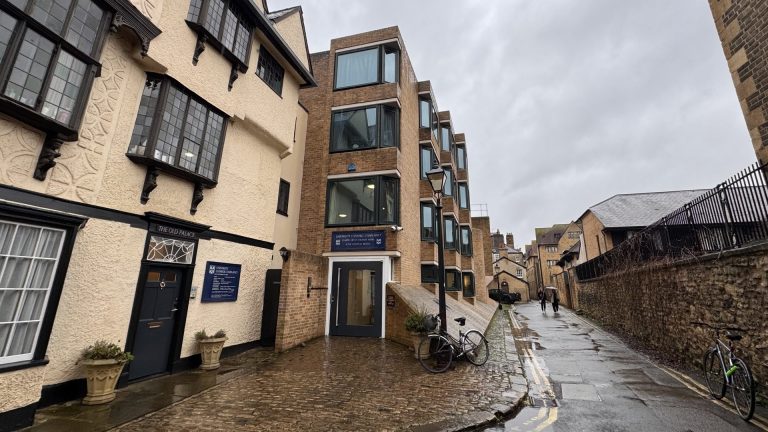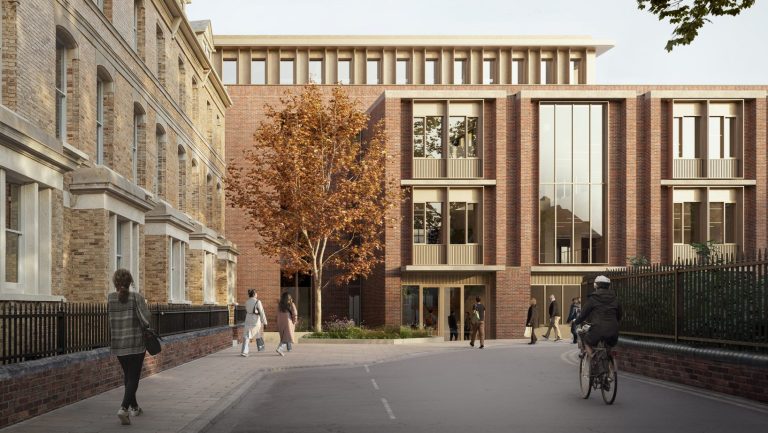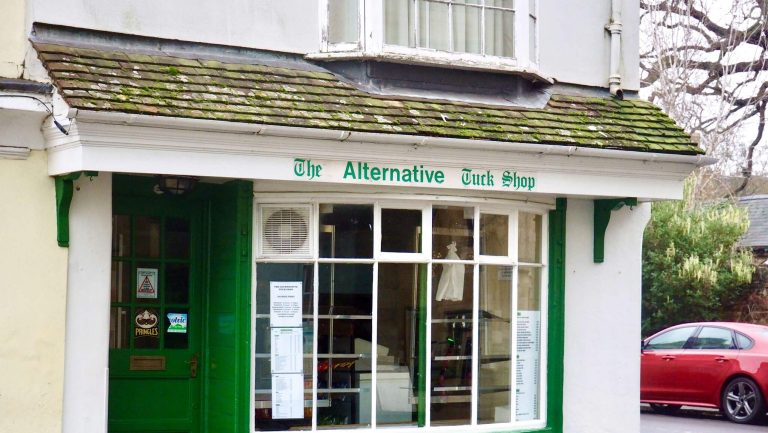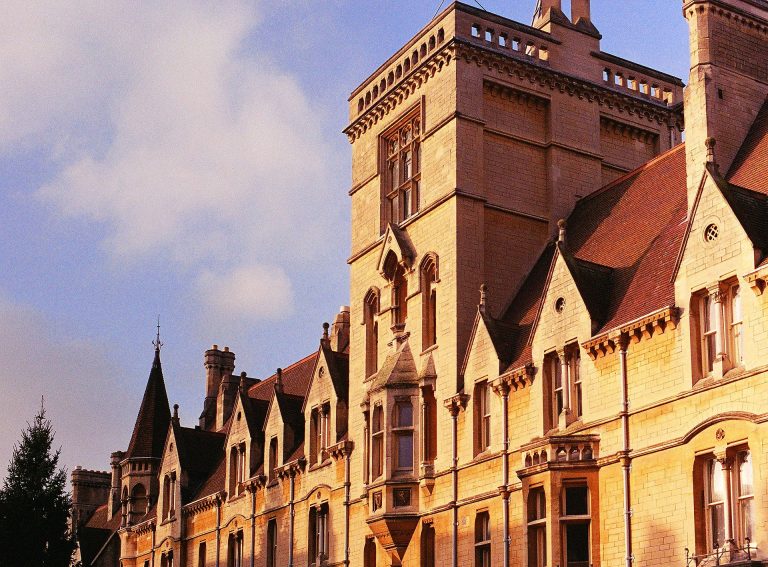CW: sexual abuse, grooming, suicide
The Senior Chaplain at the Oxford University Catholic Chaplaincy (OUCC), Father Damian Howard, was asked to step down last August after a student made a complaint of sexual abuse against him. A Cherwell investigation has subsequently revealed that Jesuits in Britain, the organisation which appoints the Senior Catholic Chaplain at the OUCC, substantially misrepresented the nature of the complaint made by the student.
The student submitted a report, seen by Cherwell, to Jesuits in Britain in early August, which alleged that Father Howard initiated sexual contact with the student on multiple occasions last summer, often while the student was under the influence of alcohol. Before becoming the University Chaplain, Howard was the Provincial Superior of Jesuits in Britain from 2017 to 2023, the leading role in the organisation.
Sexual abuse complaint
Howard met the student, who was reading for a DPhil, in 2023 through his capacity as Senior Chaplain. According to the student’s statement: “It was around this time that Damian took up the cause of my funding request to the Province, and with his help, the funding was secured.”
In Hilary term 2024, Howard reportedly invited the student to day trips and dinners on multiple occasions, which Howard usually paid for. The student wrote in his statement: “[Howard] urged me to stay in the Chaplaincy accommodation in the 2024/5 academic year, notwithstanding… my belief that I could find cheaper housing and a calmer atmosphere.”
According to the student, from late 2024 to early 2025, Howard became prone to jealous behaviour when the student spent time on other commitments. The student reported that in Michaelmas term 2024, Howard “would often end nights in his office with intense, intimate hugs”, and tell the student he loved him. In his report to the Jesuits, the student stated: “I have never been in love with him nor have I ever initiated intimate contact with him”. The student alleged that Howard initiated kisses several times last year, encouraged the student to sleep in his bed, and to remove layers of clothing. He also alleged that Howard felt his chest on several occasions.
In his report, the student claimed that, by last Hilary term, he felt “trapped” by Howard, describing the Chaplain’s involvement in his personal life as “oppressive”, but felt that he relied on him for support amid issues with his mental health and bereavement after the death of a close friend.
The student’s complaint alleged that, after one such incident, Howard told him not to “tell anyone” about the incident, because it would “ruin” him. At a later point during this period, the student reported that Howard asked again for secrecy because “a single call to Julie at safeguarding” would have him removed from his post, a reference to Julie Ashby-Ellis, Safeguarding Coordinator for Jesuits in Britain.
In the report, the student stated that Howard “failed me when I was in a vulnerable position, chiefly after the suicide of my friend. He was my University Chaplain… He was entrusted, by both the Church and the University, with the pastoral care of everyone who passes through the Chaplaincy. He witnessed the implosion of my faith, my life, and my emotional state; rather than offering the kind of disinterested support a Chaplain would, he used me as a crutch for his loneliness”.
The student concluded his report by saying: “I now believe that I was abused by Damian Howard.”
The report was submitted to Father David Smolira SJ, who is currently the Provincial Delegate for Ignatian Formation, responsible for overseeing the spirituality work of Jesuits in Britain. Smolira is also a former Provincial Superior of Jesuits in Britain.
Response from OUCC and Jesuits in Britain
Howard has been the Senior Chaplain at the Oxford University Catholic Chaplaincy (OUCC) since 2023. On the OUCC website, Howard described his employment as University Chaplain as a “pastoral role”. Jesuits in Britain confirmed in a statement to Cherwell that Father Howard “was asked to step down as Senior Chaplain at [OUCC] in August due to professional misconduct, following a complaint that was investigated and substantiated”.
“An independent review by the Catholic Safeguarding Standards Agency (CSSA) is currently underway, and we are awaiting its recommendations. The matter has also been reported to the Charity Commission and to the police. We take our safeguarding responsibilities very seriously and will continue to act as required.” Prior to the Cherwell investigation, neither OUCC nor Jesuits in Britain had issued a public statement confirming that Howard had been dismissed for professional misconduct.
The CSSA, an independent agency which ensures safeguarding standards are maintained by the Catholic Church, confirmed when asked by Cherwell that they were investigating the allegations against Father Howard.
When approached for comment, Howard directed Cherwell to the statement by Jesuits in Britain.
Father Howard was also an Honorary Fellow at Campion Hall, a Permanent Private Hall at the University of Oxford, run by Jesuits in Britain. A spokesperson for Campion Hall told Cherwell: “When the Hall was informed by Jesuits in Britain that he had been asked to step down as Senior Chaplain of the Oxford University Catholic Chaplaincy for professional misconduct, it was decided on these grounds to end his fellowship of the Hall also.” Honorary Fellows do not have teaching or pastoral responsibilities.
Misrepresentation of complaint by Jesuits in Britain
Cherwell understands that Jesuits in Britain substantially misrepresented the nature of the complaint made against Father Howard. Documents seen by Cherwell show that safeguarding staff from Jesuits in Britain sent a report concerning the student’s complaint to the Archdiocese of Birmingham, which oversees the activities of the Catholic Church across a wide territory, including Oxford.
In that report, the writer incorrectly claimed that the student had “withdrawn” his claim that an abuse of power took place in his relationship with Howard, and that he stated that the relationship was in fact consensual, and that he had chosen to postpone his further studies at Oxford.
The report also claimed that the student would deny that abuse had occurred if approached by police or safeguarding officers, and that a Jesuit member of staff had determined that no abuse had occurred following three hours of interviews with the student.
In an email sent last October, Smolira wrote to the student that he and Ashby-Ellis had agreed that there was no evidence of “grooming” in the student’s relationship with Howard. He implied that the student had recognised that the “possessive” phase of his and Howard’s relationship had lasted a few weeks, following which the student had reported his allegation of abuse.
However, in the official report that the student sent to Smolira in August, he reported possessive behaviour by Howard from as far back as Trinity term 2024. Last October, Father Peter Gallagher, the head of Jesuits in Britain, agreed to an independent review into the Jesuits’ handling of the abuse allegation. By early November, he proposed that the investigation be handled by the CSSA, to which the student agreed.
The student obtained the report sent by the Jesuits to Birmingham archdiocese through a subject access request last November. A subject access request is a person’s right under data protection law to access information pertaining to them held by an organisation.
As no further communication with Jesuits in Britain regarding the student was provided by Birmingham archdiocese, Cherwell understands that the Jesuits did not contact Birmingham archdiocese between August and November to correct the account of the allegation that they had provided. The student maintains that Howard’s conduct was not consensual and that he would co-operate fully with any police investigation into the case.
The scope of the CSSA review does not include an investigation into how and why a member of safeguarding staff for Jesuits in Britain incorrectly told the safeguarding team at Birmingham archdiocese that the student had withdrawn their allegation of abuse. A CSSA staff member told the student in December that: “We are not able to look at new concerns raised before the Jesuits have had an opportunity to investigate and respond to them themselves.”
When asked by Cherwell about whether they misrepresented the student’s complaint, Jesuits in Britain declined to comment.
Additional context
The Catholic Church has been haunted by sexual abuse controversies for several decades. Pope Leo XIV stated in June last year that the Church “must not tolerate any form of abuse”, sexual or otherwise.
In his capacity as Provincial Superior of Jesuits in Britain, Howard issued a personal apology to one of the victims of Peter Orr, a Jesuit priest who was subject to allegations of sexual abuse of minors between the 1960s and 2000s.
Jesuits are members of the Society of Jesus, a Roman Catholic order of priests founded in the 16th century. A chaplain is a religious leader who provides for spiritual needs within a predominantly secular environment, rather than a traditional church. As most Roman Catholic chaplains are priests, the Church generally expects them to be celibate.
The Survivors Network of those Abused by Priests (SNAP), which is the world’s largest community of survivors of clergy and institutional sexual abuse, told Cherwell that “religious orders, such as the Jesuits, are known for being highly insular and evading accountability, but we have seen countless instances through the years where Catholic dioceses have knowingly allowed [members previously credibly accused of abuse] of religious orders to minister under their jurisdiction.
“There is currently no law in the Catholic Church that mandates the permanent removal from ministry of individuals who have abused a child or an adult. The result of the current policy is that there are currently thousands of abusers, known to the church, who have been legally permitted under Vatican law to continue holding positions of public trust and authority.”
The University of Oxford declined to comment on this matter.
Reporting by Archie Johnston, Stanley Smith, Arina Makarina, Gaspard Rouffin, and Mercedes Haas.
If you have been affected by the issues raised in this article, there are resources available to help.
Safe Spaces provides free and confidential support for survivors of church-related abuse in England and Wales. Help line: 0300 303 1056, or make a referral at https://safespacesenglandandwales.org.uk.
Solace Thames Valley provides a 24/7 sexual assault referral service. For a referral or to book an appointment, call 0330 223 0099 or email [email protected].
The University of Oxford provides a Sexual Harassment and Violence Support Service, which can be found here: https://www.ox.ac.uk/students/welfare/supportservice.











